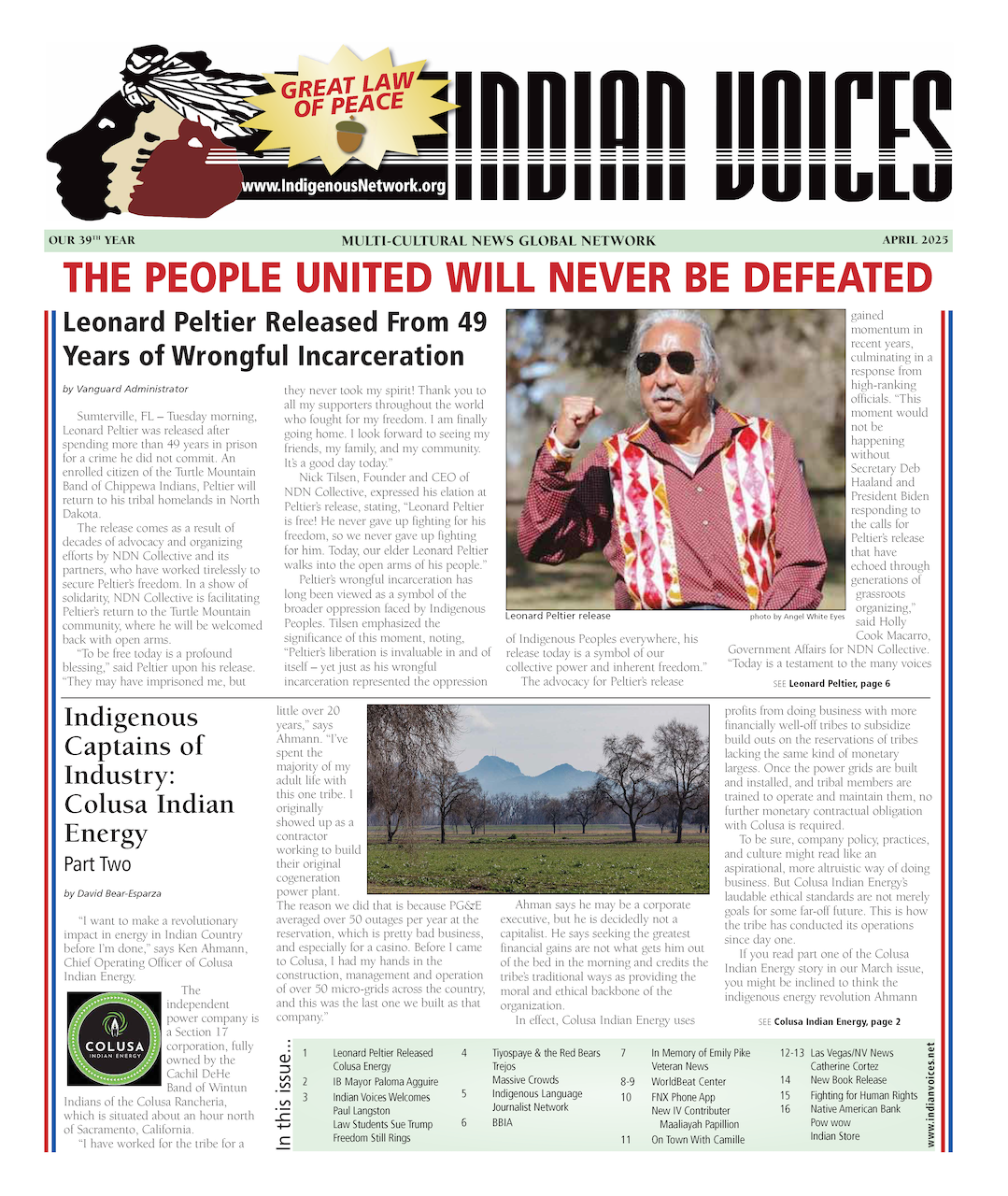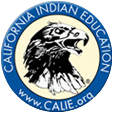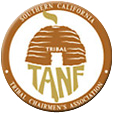Democracy, Truth, & The Great Law of Peace
An Open Letter to Mainstream Media Journalists
By INDIAN VOICES COLLECTIVE
During this unprecedented time in which a global pandemic, the rise of authoritarian leaders, and social justice tensions have coalesced to threaten the very fabric of peaceful societies in the U.S. and around the world, it is of the utmost importance that truth and the collective wisdom of All Peoples take center stage.
Destiny has placed us in one of the most chaotic and electrifying periods in human history. Not since the Civil War has the country been so volatile and deeply divided. The public desperately needs real journalists... not mere mockingbird reporters that simply repeat entrenched partisan narratives that sow division. When journalists only report along party lines to support a given narrative, it casts doubt on all journalism. It is a messy world we live in, and truth doesn’t always fall along partisan interests. But it needs to be reported anyway.
It is difficult to overstate the urgency of this moment, and of the desperate need for truth and wisdom to outshine the threatening darkness. Truth must be shouted from the rooftops in every language in every nation, city, town, and village.
And we need look no further than our own roots for these guiding principles of wisdom and truth to light our path forward.
If we would take a moment to revisit and study the Indigenous tribal cultures from which we in part emulated and fashioned our great American experiment, we would be reminded that the Indigenous political councils, and other social structures the founding fathers held in high regard, were sophisticated, effective, and non-competitive. We would also learn that Indigenous political systems were not monolithic. For example, Luiseno practices are for tribal leaders to listen, make decisions, share decisions, and the people would follow. Kumeyaay practices are for tribal leaders to listen, make decisions, and the people decided whether or not they would follow. Yet even in our present age of progressive inclusivity, contributions of First Nations peoples of Turtle Island to U.S. governance are still too little known to most American citizens. The Great Law of Peace, also known as the Haudenosaunee Constitution of the Six Nation Iroquois Confederacy, was integral to the forming of the U.S. constitution which relied on consensus building rather than majority rule. We would do well to be mindful of this pragmatic ideal as our nation slouches toward autocratic rule.
Today, Indigenous communities across the United States are pleading with journalists, as members of the powerful Fourth Estate, to rise to these momentous, challenging times. American journalists shoulder a heavy responsibility not only to the U.S. but to the entire world. Sparked by the murder of George Floyd, peoples around the globe took to the streets to protest police brutality in numbers never before seen in world history. As a flagship nation of freedom and democracy, all peoples look to American journalists to hold its elected government officials accountable. If American democracy collapses under the weight of division and corrupt authoritarianism, other nations may follow suit. Journalists hold the keys to keeping government power in check in, and ensuring our democracy remains legitimate.
For the American journalist, there has never been a more important time for objectivity, courage and valor.
As insiders within the halls of power, journalists are charged to manifest powers to navigate the barrage of information, agendas and special interests. Their mandate is to tell the unvarnished truth so that America’s citizens may make the best-informed voting decisions and keep America true to its founding principles.
As first responders to threats to democracy in America, journalists are tasked with administering the balm of vision and inspiration to our nation's wounded soul. Left untreated, the chaos and fear will spiral outward and the American experiment will face an ugly and but preventable demise.
Due to neglect, complacency, and the belief that we are immune to autocratic rule, the upper levels of our government have been invaded by senior officials, and political appointees who are not accountable to the public they serve. The results are broad scale policy decisions made in the dark without public input, creating structures which further obscure the truth. This puts honest, well-intentioned journalists, and truth-seeking reporters at a disadvantage that can only be resolved with the assistance a well-informed, electorate, and a little divine intervention. A healthy symbiosis between voter, politician, and journalist is essential to any true democracy.
The knee of the American political system has been on the neck of its indigenous population since its inception. Our peoples have been prophylactically separated from the decision-making process for far too long. Presently that is changing. Native Americans are increasingly winning political office and taking positions of power in arts, culture and the media. And this too should be getting greater attention.
All politics is local and local news isn’t isolated or small. It is the theater in which our citizens play out the historic significance of civic life. Unfortunately, there are fewer and fewer journalists to chronicle it — to cover the myriad local governments, school boards, and water districts that carry out the mundane but critical work of our democracy. When local corruption abounds unfettered in the dark, elected officials at every level are given license to act without accountability.
We have a lot of work to do to start to repair the damage and save our great nation. This is an all hands-on-deck, four-alarm fire demanding our attention. If our democracy is to survive it is up to journalists to find the healing sutures to bring our divided nation back together. And on that note, it is worth recalling the words of Thomas Jefferson in 1787, the year the Constitution was ratified: “If it were it left to me to decide whether we should have a government without newspapers or newspapers without government, I should not hesitate a moment to prefer the latter.”





